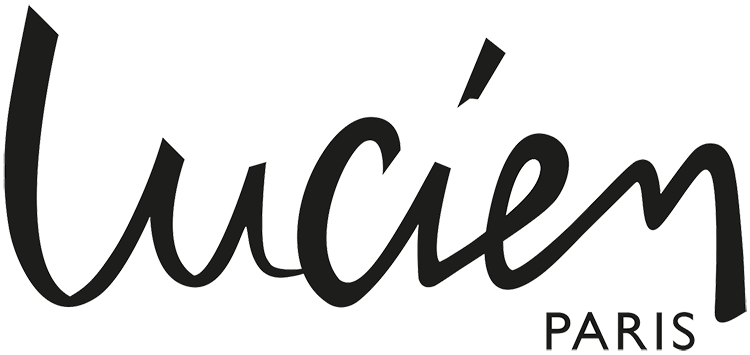Lot n° 115
Estimation :
1000 - 1500
EUR
Result without fees
Result
: 900EUR
JEAN CONSTANTIN (1923-1997)
AUTOGRAPH MANUSCRIPTS... - Lot 115 - Lucien Paris
JEAN CONSTANTIN (1923-1997)
AUTOGRAPH MANUSCRIPTS OF THE MUSIC FOR THE FILM "LES 400 COUPS" AND THE SONG "COMMENT VOULEZ-VOUS ?
Jean Constantin, author - composer.
1957.
- DRAFT OF ORIGINAL AUTOGRAPH SCORE. Pencil including an accordion part of the music of the film
of the film "Les 400 coups". One sheet of two pages. First page titled "Accordion 400 coups". Second page marked "couplet" and "see back", with
and "voir au dos", with erasure of all the inscriptions on the staves and annotations in pencil "thème en mi b refrain à l'accordéon
à t'regarder", "Zim" (provisional title of l'amour, l'amour), "Thème en mi b refrain à l'accordéon très léger", "barcarolette" (song performed by Yves Montand)
(song performed by Yves Montand), "intro conte d'Hoffmann sur un mi b", "À t'regarder", "lune" (The moon), "Virginie" (Letter to Virginie),
"Jardinier" (for "Le simple jardinier" performed by Yves Montand, etc.) A printed song sheet of the song "Le simple jardinier" is attached (torn).
jardinier" (torn).
- ORIGINAL HANDWRITTEN SCORE DRAFT. Pencil on half a page of a spiral notebook,
titled "400 coups suite".
- ORIGINAL HANDWRITTEN AUTOGRAPH SCORE. Felt pen on one page of a spiral notebook, titled "400 coups", with the words
"very light", "petite musique style". On the back, original handwritten score draft in pencil, titled "4 cellis".
- ORIGINAL HANDWRITTEN AUTOGRAPH SCORE OF ALL THE INSTRUMENTS OF THE SONG
"HOW DO YOU WANT IT". Pencil, on a loose leaf and two double taped leaves, pages numbered 1 to 10. Additions
in coloured pencil: notably "Coda" (on page 7) "slow waltz" "I play the piano", etc. An additional double sheet of adaptation
of this score to the music of The 400 Blows, pages numbered 5 to 8, page 5 marked at the top in colored pencil
"the coda symbol and additions in coloured pencils, page 8 titled "400 coups" in coloured pencils, marked
in coloured pencil, with the words "coda" in the centre left-hand corner, and additions in coloured pencil.
- DOCUMENT OF DEPOSIT AT THE SACEM OF THE MUSIC OF THE SONG "COMMENT VOULEZ-VOUS". Deposit of June 11, 1958
to the Société des Auteurs Compositeurs Éditeurs de Musique of the song "Comment voulez-vous", modified by hand. One sheet
(of double sheet; the second one is missing) of musical score. The first bears the inscription in pencil in the center: "Comment voulez-vous"
(which became the music for "Les 400 coups"). "The second page bears the inscription in the upper left-hand corner: "which became the music for the film "Les 400 coups
coups by F. Truffaut". It also bears a text indicating the awards obtained by the film (cut at the tear), the second page
titled "How do you like it" in pencil, above the penciled title "For you my love" crossed out in pencil. It also bears the inscription
"Valse lente" in pen. The notes and text of the song are written in pen, the erasures in coloured pencil, the additions in pencil. Stamp
of the SACEM in the upper left corner.
PROVENANCE.
Estate of Jean Constantin.
One evening in 1958, in Paris, after a Cabaret show by Jean Constantin, François Truffaut visited him in his dressing room. He does not declare his
He does not declare his identity, only introduces himself as a director who is making his first feature film. He explains that he is an admirer of the
songs of the composer, especially "Comment voulez-vous" performed by Juliette Gréco. He would like the music of this one to be the main theme of his film.
the main theme of his film. Constantin was initially incredulous. The filmmaker offers to show him some rushes in the middle of the night at the studios
in Joinville-Le-Pont. Constantin lives in Noisy-Le-Grand; the studios are on his way home. Amazed by the beauty of the images
He agrees to sign the adaptation of the song in multiple variations for the film's soundtrack.
Inspired by Hitchcock, Bergman, Renoir, Rossellini and Cocteau, Les Quatre Cents Coups, the most important film of the New Wave
Along with Jean-Luc Godard's À bout de souffle, Les Quatre Cents Coups tells the story of the spiral into which 12-year-old Antoine Doinel, played by Jean-Pierre Léaud, sinks,
a barely fictionalized double of François Truffaut. Prisoner of a family and school straitjacket, the young Doinel, despite his good will, seems to
seems to blossom only by wandering outside, in the streets of Paris. The capital, captured in the late 1950s, is a character in its own right,
captured from all angles. Travellings, low-angle shots, make the buildings pass by relentlessly: avenues, buildings, offices, shops, shopping centres, squares.
Open spaces succeed closed ones. "I have to live my life," Antoine finally announces, wearily. The hero,
My orders
Sale information
Sales conditions
Return to catalogue

